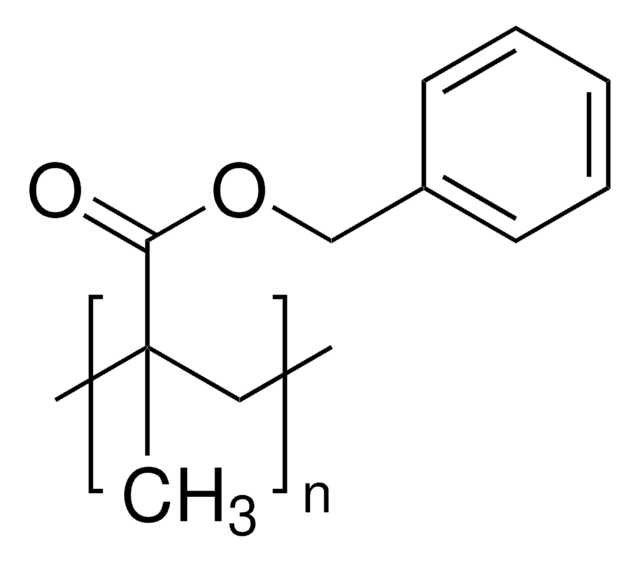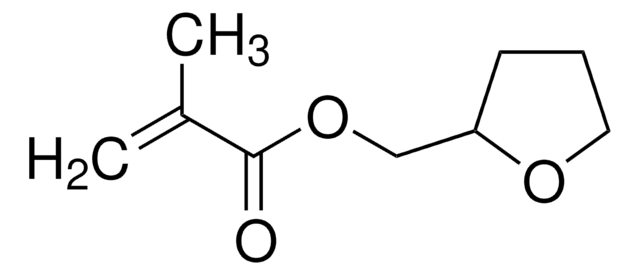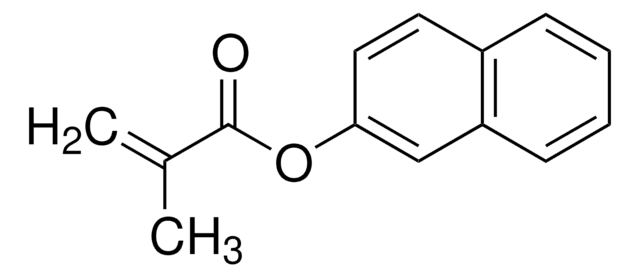409448
Benzyl methacrylate
96%, contains monomethyl ether hydroquinone as inhibitor
Synonym(s):
Benzyl α-methylacrylate, Benzyl 2-methylacrylate, Phenylmethyl 2-methyl-2-propenoate
About This Item
Recommended Products
Quality Level
Assay
96%
form
liquid
contains
monomethyl ether hydroquinone as inhibitor
refractive index
n20/D 1.512 (lit.)
bp
95-98 °C/4 mmHg (lit.)
density
1.04 g/mL at 25 °C (lit.)
SMILES string
CC(=C)C(=O)OCc1ccccc1
InChI
1S/C11H12O2/c1-9(2)11(12)13-8-10-6-4-3-5-7-10/h3-7H,1,8H2,2H3
InChI key
AOJOEFVRHOZDFN-UHFFFAOYSA-N
Related Categories
Application
- Statistical copolymers of benzyl methacrylate and diethylaminoethyl methacrylate: monomer reactivity ratios and thermal properties: The synthesis of poly(benzyl methacrylate) (PBzMA) and poly(diethylaminoethyl methacrylate) (PDEAEMA) statistical copolymers via free radical polymerization (Theodosopoulos, 2015).
- Poly (benzyl methacrylate)-poly triblock-copolymers as solid electrolyte for lithium batteries: Synthesis of a new type of BAB triblock copolymer based on benzyl methacrylate and oligo(ethylene glycol) methyl ether methacrylate for lithium battery electrolytes (Bergfelt et al., 2018).
- Dilute Solution Properties of Poly (benzyl methacrylate) in Ionic Liquids: Study on the dilute solution properties of PBzMA in various ionic liquids (Kharel et al., 2020).
- Synthesis and evaluation of benzyl methacrylate-methacrylate copolymers as pour point depressant in diesel fuel: Study on the effectiveness of benzyl methacrylate-methacrylate copolymers as pour point depressants in diesel fuel (Xie et al., 2019).
Signal Word
Warning
Hazard Statements
Precautionary Statements
Hazard Classifications
Eye Irrit. 2 - Skin Irrit. 2 - STOT SE 3
Target Organs
Respiratory system
Storage Class Code
10 - Combustible liquids
WGK
WGK 1
Flash Point(F)
224.6 °F - closed cup
Flash Point(C)
107 °C - closed cup
Personal Protective Equipment
Choose from one of the most recent versions:
Already Own This Product?
Find documentation for the products that you have recently purchased in the Document Library.
Customers Also Viewed
Our team of scientists has experience in all areas of research including Life Science, Material Science, Chemical Synthesis, Chromatography, Analytical and many others.
Contact Technical Service













